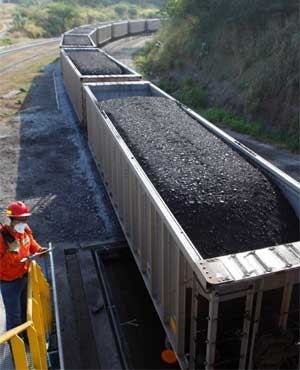South Africa: Fight for pay raise for the education of the children
- Details
- Category: Africa
- Created: Tuesday, 06 October 2015 18:39
- Hits: 4128

Buy Photos JOHANNESBURG – Eskom does not expect the National Union of Mineworkers' (NUM's) strike in the coal sector to have an immediate effect on its coal supplies, but prolonged industrial action will deplete the power utility's stockpiles. Over 30 000 NUM members went on strike on Sunday after NUM and affected coal companies – Anglo Coal, Glencore, Delmas, Exxaro Coal, Kangra and Msobo – could not reach an agreement over NUM's demand for R1 000 for the lowest category and 14% for the artisans, miners and officials. The Commission for Conciliation, Mediation, and Arbitration issued a certificate of non-resolution to the dispute between NUM and the companies last week. A protracted strike could see the return of Eskom's coal problems as its coal supplies will be depleted, threatening the utility's ability to supply power. On Monday, Eskom said there is no immediate threat to power supply as most of its coal-fired power stations have stockpiles of over 30 days. Spokesperson Khulu Phasiwe said in the event of the strike continuing for too long, Eskom could tap into the coal reserves kept by the various mining companies. "However, that is not ideal because we will have to truck the coal. Secondly, it will be costly. Hopefully the strike will end very soon," Phasiwe said. Low stockpiles and poor coal at Eskom power stations were among the main reasons for the 2008 power supply crisis. Immediately after the 2008 power shortages Eskom took steps to increase coal stockpiles from under 10 days. These included buying coal, at relatively high prices, on short-term contracts. The coal strike could, therefore, bring back days of low stockpiles.









